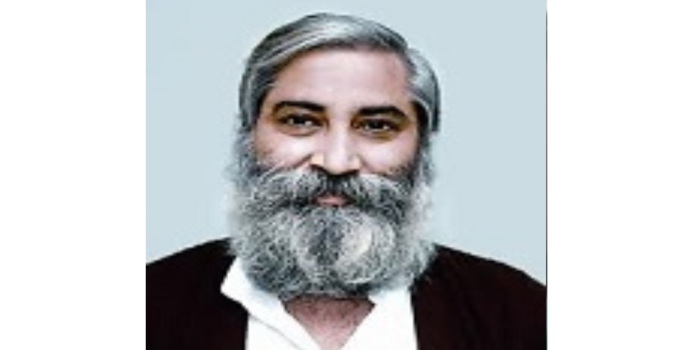Samajwadi Party considers Dr. Ram Manohar Lohia as its main ideologue-icon. Dr. Lohia was severely critical of Jawahar Lal Nehru for promoting dynastic politics. But Mulayam Singh seems to have conveniently overlooked this abhorrence of Dr. Lohia. Untill recently most Samajwadi Party hoardings would have pictures of only family members – mostly Mulayam Singh, Akhilesh, Shivpal and Ram Gopal Yadav. For any member of the SP with an iota of self-respect it must have been embarrassing to acknowledge that the party did not have any credible leader outside the family. It was almost as if one was not from the family his loyalty to the party was doubtful. Quite obviously the model that Yadav family was following was that of Nehru-Gandhi family. The first family to practice dynastic politics in India has now inspired a number of other political families within the country like those of Sheikh Abdullah, Jagjivan Ram, Vijayraje Scindia, Devi Lal, Chaudhary Charan Singh, Rajesh Pilot, Jitendra Kumar, Sharad Pawar, M. Karunanidhi, Lalu Prasad Yadav, N.T. Rama Rao, Mufti Mohammed Sayeed and many others whose next generations have also emerged as leaders holding important positions. The Nehru-Gandhi influence was also seen in the sub-continent on Bhutto, Sheikh Mujibur Rahman, Hussain Muhammad Ershad and Bandaranaike families. In fact, now it is becoming more of a norm in India than exception that wife, sons and daughters also try their hands at politics, especially if any position held by a politician is vacated due to any reason. It is as if the family considers it their right to have another family member replace their kin in position of power. This essentially reflects the feudal mentality of our society. It is not just the family members of a politician who take advantage of their family’s political status but even the common people return the family members to power legitimising their claim. In fact, the family members of a politician justify their claim on the basis of mandate they receive from the people in elections. However, some of these family members have no political inclination or understanding of social-political-economic issues and thus prevent more capable candidates from serving people from positions they capture. The Indian political system has been heavily infiltrated by dynastic politics which has seriously damaged its democratic character.
However, Mulayam Singh’s family had taken the dynastic politics to an extreme. Not only all the important leaders came from a family but the family in due course of time has now acquired fourteen positions of elected representatives at some level or the other and new aspirants like Aparna Yadav, married to Mulayam Singh’s second wife’s son, are knocking at the door.
But the total capture of power at the top by family members is now becoming Mulayam Singh’s undoing. It almost reminds of feuds in royal families. Mulayam Singh will have to pay the price for having killed any inner party democracy and for having run the party like a fiefdom. There are no independent thinking tall leaders left in the party who could guide the party in times of crisis. It is only Mulayam Singh who can call the shots and he has to take the difficult decision of choosing between his son and his brother. He is himself to be blamed for this situation. If he had any other senior leaders they could have found a solution going beyond the family. It is a pity that even now all the options that are being considered are from within the family. Why can Mulayam, Akhilesh or Shivpal be the only possible candidates for CM’s post? Azam Khan or Beni Prasad Verma are senior enough to be considered for this position. In fact, a good way to resolve the dispute in the family would be to have somebody from outside the family made the candidate for CM’s post. This will also prove that the party leadership is not synonymous with the family and this is not a royal family but a family part of a democratic political party. Is Mulayam Singh socialist enough to give up his love for the family?
If the Yadav family does not resolve its disputes then it is most likely doomed. Even if they keep together the scars left by ongoing scuffle will continue to fester. It will never be the same again. How will be Yadav family members work together with bruised egos is unclear. On the other hand if they break up, it is even more uncertain. Mulayam Singh is the only one who can assure mass votes for the party. It will be expecting too much from Mulayam to carry the party through towards the fag end of his career. Shivpal has always remained in his shadow and is not a leader in his own right. Akhilesh is still immature and does not have a connection with the grassroots or an understanding of issues. Some of his decisions may have to be reversed by any future government. For example, he has started giving a monthly pension of Rs. 50,000 to recipients of state government’s Yash Bharti award which carries a cash prize of Rs. 11 lakhs. Such thing is unheard of anywhere in the world. He has revelled in splurging pubic money.
The infighting has badly damaged the Samajwadi Party. If the family is not able to salvage the party and remain in the electoral fray then it may also signal the beginning of the end of feudal-dynastic politics in India. It’ll be a good lesson for all families practicing dynastic politics. Maybe, this feud was needed to reverse the trend of one of the major ills afflicting Indian politics now which makes a mockery of democracy.
By Sandeep Pandey
Vice President, Socialist Party (India)
A-893, Indira Nagar, Lucknow-226016
Ph: 0522 2347365, M: 9506533722 (Sharad Patel)
e-mail: ashaashram@yahoo.com













